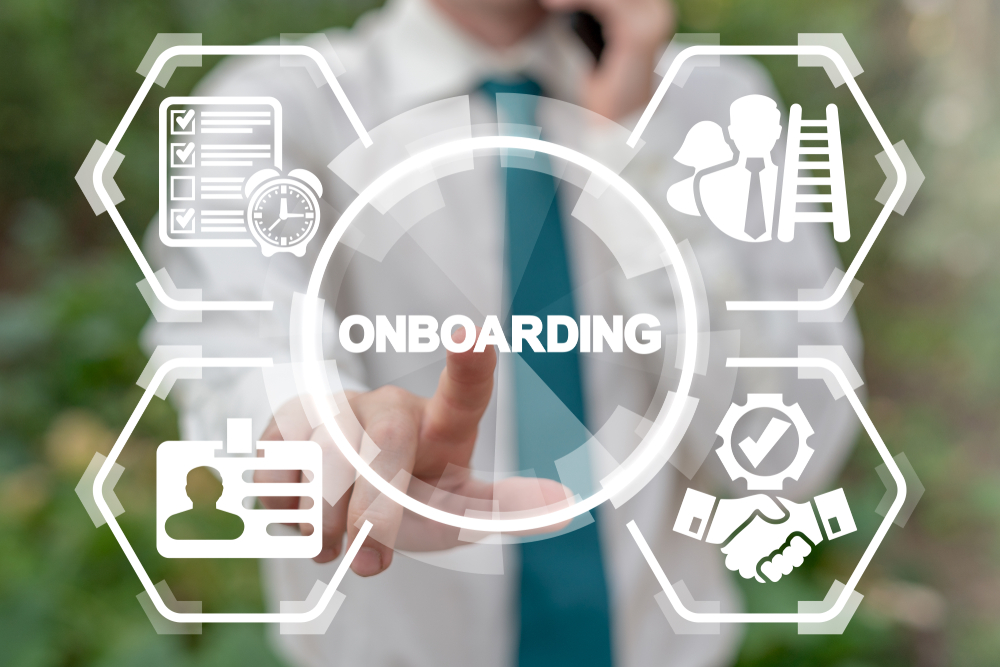
In the Life Sciences industry, the success of new sales representatives hinges on more than just their raw talent. To excel in a field where rep knowledge and accuracy can directly impact patient outcomes, an effective onboarding process is critical, as it sets the foundation for success.
With the right approach to onboarding, you can transform raw potential into competent, confident, and compelling professionals, but how do you know if you have an effective program?
The Onboarding Conundrum: A Costly Gap in Competence
In today's corporate world, onboarding is a multi-billion-dollar investment, yet shockingly, only 12% of employees feel that onboarding is executed well. As new hires delve into their roles, they retain only 16% of the initial information they receive after three months. It’s concerning, especially in an industry where knowledge retention can make or break a critical HCP interaction. So it puts not only performance, but also new-hire retention, at risk.
Moreover, the checkbox, "one-size-fits-all" onboarding approach can fall short. Such an approach does not take into account the nuances and complexities of the Life Sciences industry, leaving many new representatives unprepared to navigate its intricacies. It’s no wonder that only 29% of representatives feel adequately prepared and supported.
Bridging the Gap: Coaching and Connectivity
The Life Sciences industry is about building trust, sharing knowledge, and communicating effectively. Unfortunately, the disconnect between coaching and learning often hampers representatives' growth. According to a recent study, a staggering 73% of pharma sales managers spend less than 5% of their time coaching their field sales reps. Such a lack of guidance severely hinders representatives' ability to refine their skills and adapt to the ever-changing industry.
Technology can bridge this gap, seamlessly creating a unified program that aligns learning, coaching, and sales. With such a platform, sales managers can actively engage with their team and provide real-time insights, feedback, guidance, and coaching. This integrated approach fosters a culture of continuous learning, empowering representatives to improve their skills and contribute meaningfully to the company's success as the drug moves along its lifecycle.
The Art of Exceptional Onboarding
Cultivating exceptional outcomes and ensuring excellence requires a well thought-out onboarding process that is comprehensive and dynamic.
Imagine an onboarding journey that molds each new hire's learning experience to their needs, strengths, and knowledge gaps. Such a personalized learning journey, delivered through a modern learning platform can improve engagement and retention during the onboarding process and make training more memorable for the rep.

Integrated learning platforms can also address the disconnect between training and sales by incorporating coaching into a unified program that allows sales managers to communicate with their teams and provide real-time guidance.
To ensure rep success, organizations must introduce onboarding as the first step in a continuous learning journey that evolves alongside the representatives and extends beyond their months of home study and live training, offering ongoing skill enhancement and value.
Conclusion: Commercial Excellence Begins With Effective Onboarding
The onboarding journey is no longer just a once-and-done exercise; it's an investment in a future where representatives are both well trained and successful. With a dedication to rep competence and confidence, the Life Sciences industry demands an innovative onboarding approach that includes continuous learning. When we make such a commitment, the onboarding process strengthens the foundation for new hires to be successful and exude the confidence and competence required for commercial excellence.
Success is not measured merely by knowledge but by the fusion of expertise, confidence, and meaningful engagement. Through real-time coaching, seamless integration, and continuous development, an integrated learning platform can bridge the gap between knowledge acquisition and knowledge application, creating competent and effective professionals.
